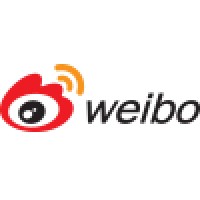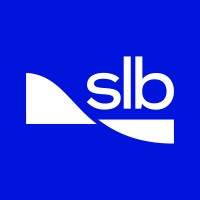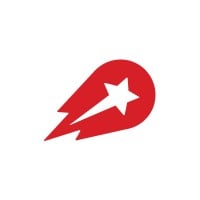
Weibo Corporation Company Cyber Security Posture
weibo.comWeibo (NASDAQ: WB) is a leading social media platform for people to create, distribute and discover Chinese-language content. By providing an unprecedented and simple way for Chinese people and organizations to publicly express themselves in real time, interact with others on a massive global platform and stay connected with the world, Weibo has had a profound social impact in China. Since our inception four years ago, Weibo has amassed a large user base in China and in Chinese communities in more than 190 countries. In December 2013, Weibo had 129.1 million monthly active users, or MAUs, and 61.4 million average daily active users, or average DAUs, increasing from 96.7 million MAUs and 45.1 million average DAUs in December 2012, and 72.9 million MAUs and 25.2 million average DAUs in December 2011. In March 2014, Weibo had 143.8 million MAUs and 66.6 million average DAUs, increasing from 107.3 million MAUs and 48.6 million average DAUs in March 2013. A microcosm of Chinese society, Weibo has attracted a wide range of users, including ordinary people, celebrities and other public figures, as well as organizations such as media outlets, businesses, government agencies and charities. Weibo represents a new online experience in China by combining the means of real-time public self-expression with a powerful platform for social interaction, as well as content aggregation and distribution. Any user can create and post a feed of up to 140 Chinese characters and attach multimedia or long-form content. User relationships on Weibo may be asymmetric; any user can follow any other user and add comments to a feed while reposting. The simple, asymmetric and distributed nature of Weibo allows an original feed to become a live viral conversation stream. Over 2.8 billion feeds were shared on Weibo in December 2013, including 2.2 billion feeds with pictures, 81.7 million feeds with short videos and 21.5 million feeds with songs.
Weibo Corporation Company Details
987 employees
5461.0
none
Technology, Information and Internet
weibo.com
Scan still pending
WEI_1549937
In-progress
Between 200 and 800
This score is AI-generated and less favored by cyber insurers, who prefer the TPRM score.
 Weibo Corporation Global Score
Weibo Corporation Global Score.png)

Weibo Corporation Company Scoring based on AI Models
| Model Name | Date | Description | Current Score Difference | Score |
|---|---|---|---|---|
| AVERAGE-Industry | 03-12-2025 | This score represents the average cybersecurity rating of companies already scanned within the same industry. It provides a benchmark to compare an individual company's security posture against its industry peers. | N/A | Between 200 and 800 |
Weibo Corporation Company Cyber Security News & History
| Entity | Type | Severity | Impact | Seen | Url ID | Details | View |
|---|---|---|---|---|---|---|---|
| Weibo Corporation | Data Leak | 85 | 4 | 03/2020 | WEI2324251122 | Link | |
Rankiteo Explanation : Attack with significant impact with customers data leaksDescription: Chinese social network Weibo experienced a data breach incident that exposed the personal details of more than 538 million users. The data from the company’s user database was also put on sale online. The database allegedly contained the details of 538 million Weibo users including personal details like real names, site usernames, gender, location, and — for 172 million users — phone numbers. | |||||||
Weibo Corporation Company Subsidiaries

Weibo (NASDAQ: WB) is a leading social media platform for people to create, distribute and discover Chinese-language content. By providing an unprecedented and simple way for Chinese people and organizations to publicly express themselves in real time, interact with others on a massive global platform and stay connected with the world, Weibo has had a profound social impact in China. Since our inception four years ago, Weibo has amassed a large user base in China and in Chinese communities in more than 190 countries. In December 2013, Weibo had 129.1 million monthly active users, or MAUs, and 61.4 million average daily active users, or average DAUs, increasing from 96.7 million MAUs and 45.1 million average DAUs in December 2012, and 72.9 million MAUs and 25.2 million average DAUs in December 2011. In March 2014, Weibo had 143.8 million MAUs and 66.6 million average DAUs, increasing from 107.3 million MAUs and 48.6 million average DAUs in March 2013. A microcosm of Chinese society, Weibo has attracted a wide range of users, including ordinary people, celebrities and other public figures, as well as organizations such as media outlets, businesses, government agencies and charities. Weibo represents a new online experience in China by combining the means of real-time public self-expression with a powerful platform for social interaction, as well as content aggregation and distribution. Any user can create and post a feed of up to 140 Chinese characters and attach multimedia or long-form content. User relationships on Weibo may be asymmetric; any user can follow any other user and add comments to a feed while reposting. The simple, asymmetric and distributed nature of Weibo allows an original feed to become a live viral conversation stream. Over 2.8 billion feeds were shared on Weibo in December 2013, including 2.2 billion feeds with pictures, 81.7 million feeds with short videos and 21.5 million feeds with songs.
Access Data Using Our API

Get company history
.png)
Weibo Corporation Cyber Security News
Weibo price target raised to $12.10 from $10.90 at Jefferies
Jefferies raised the firm's price target on Weibo (WB) to $12.10 from $10.90 and keeps a Buy rating on the shares after the company reported ...
Transcript : Weibo Corporation, Q1 2025 Earnings Call, May 21, 2025
Good day, and thank you for standing by. Welcome to the Weibo reports first quarter 2025 financial results conference call. ... Unlock the article ...
Weibo Publishes 2024 Environmental, Social and Governance Report
The platform actively champions social causes, such as emergency disaster relief, rural revitalization, traditional Chinese culture promotion, ...
This Corporate Data Breach Lasted 3 Years and Exposed 3 Billion Accounts
This April 2019 breach accessed the data of more than 533 million Facebook customers and revealed information on over 530 million Facebook users.
The 18 biggest data breaches of the 21st century
An up-to-date list of the 15 biggest data breaches in recent history, including details of those affected, who was responsible, and how the companies responded.
Weibo fined by Chinese regulator for publishing illegal information
Chinese social media platform Weibo Corp has been slapped with a 3 million yuan ($470000) fine by China's internet regulator for repeatedly ...
Weibo Corporation to Report First Quarter 2025 Financial Results on May 21, 2025
Weibo Corporation (NASDAQ: WB and HKEX: 9898), a leading social media for people to create, share and discover content, will announce its ...
China Fines Weibo for Spreading ‘Illegal Information’
SINGAPORE—Chinese authorities said they have fined social-media giant Weibo Corp. millions of dollars for a string of infractions, ...
China's Sina Weibo Reverses Ban on Gay Content After User Uproar
Chinese microblogging site Sina Weibo reversed its decision to delete content related to gay themes following intense public backlash.

Weibo Corporation Similar Companies

SLB
We are a technology company that unlocks access to energy for the benefit of all. As innovators, that’s been our mission for nearly a century. Today, we face a global imperative to create a future with more energy, but less carbon. Our diverse, innovative change makers are focused on going further i

Booking Holdings (NASDAQ: BKNG)
Booking Holdings is the world’s leading provider of online travel & related services, provided to consumers and local partners in more than 220 countries and territories through six primary consumer-facing brands: Booking.com, Priceline, Agoda, Rentalcars.com, KAYAK and OpenTable. Collectively, Book

Delivery Hero
As the world’s leading local delivery platform, our mission is to deliver an amazing experience, fast, easy, and to your door. We operate in over 70+ countries worldwide, powered by tech but driven by people. As one of Europe’s largest tech platforms, we enable ambitious talent to deliver solutions

Fanatics
Fanatics is building a leading global digital sports platform. We ignite the passions of global sports fans and maximize the presence and reach for our hundreds of sports partners globally by offering products and services across Fanatics Commerce, Fanatics Collectibles, and Fanatics Betting & Gamin

e&
We're a global technology group focused on innovation and collaboration to create a better future for all. Since 1976, we've been pioneering new technologies and expanding our reach to more people and places. Today, we provide services to over 163 million customers across 16 countries in the Middle

Mega Holdings
Our vision is to be an ideal leading international network marketing company making website ownership available to everyone, providing a simple state-of-the-art and professionally-developed online product and multi-level training to empower and develop the youths into independent business owners. Th

Frequently Asked Questions (FAQ) on Cybersecurity Incidents
Weibo Corporation CyberSecurity History Information
Total Incidents: According to Rankiteo, Weibo Corporation has faced 1 incidents in the past.
Incident Types: The types of cybersecurity incidents that have occurred include ['Data Leak'].
Total Financial Loss: The total financial loss from these incidents is estimated to be {total_financial_loss}.
Cybersecurity Posture: The company's overall cybersecurity posture is described as Weibo (NASDAQ: WB) is a leading social media platform for people to create, distribute and discover Chinese-language content. By providing an unprecedented and simple way for Chinese people and organizations to publicly express themselves in real time, interact with others on a massive global platform and stay connected with the world, Weibo has had a profound social impact in China. Since our inception four years ago, Weibo has amassed a large user base in China and in Chinese communities in more than 190 countries. In December 2013, Weibo had 129.1 million monthly active users, or MAUs, and 61.4 million average daily active users, or average DAUs, increasing from 96.7 million MAUs and 45.1 million average DAUs in December 2012, and 72.9 million MAUs and 25.2 million average DAUs in December 2011. In March 2014, Weibo had 143.8 million MAUs and 66.6 million average DAUs, increasing from 107.3 million MAUs and 48.6 million average DAUs in March 2013. A microcosm of Chinese society, Weibo has attracted a wide range of users, including ordinary people, celebrities and other public figures, as well as organizations such as media outlets, businesses, government agencies and charities. Weibo represents a new online experience in China by combining the means of real-time public self-expression with a powerful platform for social interaction, as well as content aggregation and distribution. Any user can create and post a feed of up to 140 Chinese characters and attach multimedia or long-form content. User relationships on Weibo may be asymmetric; any user can follow any other user and add comments to a feed while reposting. The simple, asymmetric and distributed nature of Weibo allows an original feed to become a live viral conversation stream. Over 2.8 billion feeds were shared on Weibo in December 2013, including 2.2 billion feeds with pictures, 81.7 million feeds with short videos and 21.5 million feeds with songs..
Detection and Response: The company detects and responds to cybersecurity incidents through {description_of_detection_and_response_process}.
Incident Details
Incident 1: Ransomware Attack
Title: {Incident_Title}
Description: {Brief_description_of_the_incident}
Date Detected: {Detection_Date}
Date Publicly Disclosed: {Disclosure_Date}
Date Resolved: {Resolution_Date}
Type: {Type_of_Attack}
Attack Vector: {Attack_Vector}
Vulnerability Exploited: {Vulnerability}
Threat Actor: {Threat_Actor}
Motivation: {Motivation}
Incident 2: Data Breach
Title: {Incident_Title}
Description: {Brief_description_of_the_incident}
Date Detected: {Detection_Date}
Date Publicly Disclosed: {Disclosure_Date}
Date Resolved: {Resolution_Date}
Type: {Type_of_Attack}
Attack Vector: {Attack_Vector}
Vulnerability Exploited: {Vulnerability}
Threat Actor: {Threat_Actor}
Motivation: {Motivation}
Common Attack Types: As of now, the company has not encountered any reported incidents involving common cyberattacks.
Identification of Attack Vectors: The company identifies the attack vectors used in incidents through {description_of_identification_process}.
Impact of the Incidents
Incident 1: Ransomware Attack
Financial Loss: {Financial_Loss}
Data Compromised: {Data_Compromised}
Systems Affected: {Systems_Affected}
Downtime: {Downtime}
Operational Impact: {Operational_Impact}
Conversion Rate Impact: {Conversion_Rate_Impact}
Revenue Loss: {Revenue_Loss}
Customer Complaints: {Customer_Complaints}
Brand Reputation Impact: {Brand_Reputation_Impact}
Legal Liabilities: {Legal_Liabilities}
Identity Theft Risk: {Identity_Theft_Risk}
Payment Information Risk: {Payment_Information_Risk}
Incident 2: Data Breach
Financial Loss: {Financial_Loss}
Data Compromised: {Data_Compromised}
Systems Affected: {Systems_Affected}
Downtime: {Downtime}
Operational Impact: {Operational_Impact}
Conversion Rate Impact: {Conversion_Rate_Impact}
Revenue Loss: {Revenue_Loss}
Customer Complaints: {Customer_Complaints}
Brand Reputation Impact: {Brand_Reputation_Impact}
Legal Liabilities: {Legal_Liabilities}
Identity Theft Risk: {Identity_Theft_Risk}
Payment Information Risk: {Payment_Information_Risk}
Average Financial Loss: The average financial loss per incident is {average_financial_loss}.
Commonly Compromised Data Types: The types of data most commonly compromised in incidents are {list_of_commonly_compromised_data_types}.
Incident 1: Ransomware Attack
Entity Name: {Entity_Name}
Entity Type: {Entity_Type}
Industry: {Industry}
Location: {Location}
Size: {Size}
Customers Affected: {Customers_Affected}
Incident 2: Data Breach
Entity Name: {Entity_Name}
Entity Type: {Entity_Type}
Industry: {Industry}
Location: {Location}
Size: {Size}
Customers Affected: {Customers_Affected}
Response to the Incidents
Incident 1: Ransomware Attack
Incident Response Plan Activated: {Yes/No}
Third Party Assistance: {Yes/No}
Law Enforcement Notified: {Yes/No}
Containment Measures: {Containment_Measures}
Remediation Measures: {Remediation_Measures}
Recovery Measures: {Recovery_Measures}
Communication Strategy: {Communication_Strategy}
Adaptive Behavioral WAF: {Adaptive_Behavioral_WAF}
On-Demand Scrubbing Services: {On_Demand_Scrubbing_Services}
Network Segmentation: {Network_Segmentation}
Enhanced Monitoring: {Enhanced_Monitoring}
Incident 2: Data Breach
Incident Response Plan Activated: {Yes/No}
Third Party Assistance: {Yes/No}
Law Enforcement Notified: {Yes/No}
Containment Measures: {Containment_Measures}
Remediation Measures: {Remediation_Measures}
Recovery Measures: {Recovery_Measures}
Communication Strategy: {Communication_Strategy}
Adaptive Behavioral WAF: {Adaptive_Behavioral_WAF}
On-Demand Scrubbing Services: {On_Demand_Scrubbing_Services}
Network Segmentation: {Network_Segmentation}
Enhanced Monitoring: {Enhanced_Monitoring}
Incident Response Plan: The company's incident response plan is described as {description_of_incident_response_plan}.
Third-Party Assistance: The company involves third-party assistance in incident response through {description_of_third_party_involvement}.
Data Breach Information
Incident 2: Data Breach
Type of Data Compromised: {Type_of_Data}
Number of Records Exposed: {Number_of_Records}
Sensitivity of Data: {Sensitivity_of_Data}
Data Exfiltration: {Yes/No}
Data Encryption: {Yes/No}
File Types Exposed: {File_Types}
Personally Identifiable Information: {Yes/No}
Prevention of Data Exfiltration: The company takes the following measures to prevent data exfiltration: {description_of_prevention_measures}.
Handling of PII Incidents: The company handles incidents involving personally identifiable information (PII) through {description_of_handling_process}.
Ransomware Information
Incident 1: Ransomware Attack
Ransom Demanded: {Ransom_Amount}
Ransom Paid: {Ransom_Paid}
Ransomware Strain: {Ransomware_Strain}
Data Encryption: {Yes/No}
Data Exfiltration: {Yes/No}
Ransom Payment Policy: The company's policy on paying ransoms in ransomware incidents is described as {description_of_ransom_payment_policy}.
Data Recovery from Ransomware: The company recovers data encrypted by ransomware through {description_of_data_recovery_process}.
Regulatory Compliance
Incident 1: Ransomware Attack
Regulations Violated: {Regulations_Violated}
Fines Imposed: {Fines_Imposed}
Legal Actions: {Legal_Actions}
Regulatory Notifications: {Regulatory_Notifications}
Incident 2: Data Breach
Regulations Violated: {Regulations_Violated}
Fines Imposed: {Fines_Imposed}
Legal Actions: {Legal_Actions}
Regulatory Notifications: {Regulatory_Notifications}
Regulatory Frameworks: The company complies with the following regulatory frameworks regarding cybersecurity: {list_of_regulatory_frameworks}.
Ensuring Regulatory Compliance: The company ensures compliance with regulatory requirements through {description_of_compliance_measures}.
Lessons Learned and Recommendations
Incident 1: Ransomware Attack
Lessons Learned: {Lessons_Learned}
Incident 2: Data Breach
Lessons Learned: {Lessons_Learned}
Incident 1: Ransomware Attack
Recommendations: {Recommendations}
Incident 2: Data Breach
Recommendations: {Recommendations}
Key Lessons Learned: The key lessons learned from past incidents are {list_of_key_lessons_learned}.
Implemented Recommendations: The company has implemented the following recommendations to improve cybersecurity: {list_of_implemented_recommendations}.
References
Additional Resources: Stakeholders can find additional resources on cybersecurity best practices at {list_of_additional_resources}.
Investigation Status
Incident 1: Ransomware Attack
Investigation Status: {Investigation_Status}
Incident 2: Data Breach
Investigation Status: {Investigation_Status}
Communication of Investigation Status: The company communicates the status of incident investigations to stakeholders through {description_of_communication_process}.
Stakeholder and Customer Advisories
Incident 1: Ransomware Attack
Stakeholder Advisories: {Stakeholder_Advisories}
Customer Advisories: {Customer_Advisories}
Incident 2: Data Breach
Stakeholder Advisories: {Stakeholder_Advisories}
Customer Advisories: {Customer_Advisories}
Advisories Provided: The company provides the following advisories to stakeholders and customers following an incident: {description_of_advisories_provided}.
Initial Access Broker
Incident 1: Ransomware Attack
Entry Point: {Entry_Point}
Reconnaissance Period: {Reconnaissance_Period}
Backdoors Established: {Backdoors_Established}
High Value Targets: {High_Value_Targets}
Data Sold on Dark Web: {Yes/No}
Incident 2: Data Breach
Entry Point: {Entry_Point}
Reconnaissance Period: {Reconnaissance_Period}
Backdoors Established: {Backdoors_Established}
High Value Targets: {High_Value_Targets}
Data Sold on Dark Web: {Yes/No}
Monitoring and Mitigation of Initial Access Brokers: The company monitors and mitigates the activities of initial access brokers through {description_of_monitoring_and_mitigation_measures}.
Post-Incident Analysis
Incident 1: Ransomware Attack
Root Causes: {Root_Causes}
Corrective Actions: {Corrective_Actions}
Incident 2: Data Breach
Root Causes: {Root_Causes}
Corrective Actions: {Corrective_Actions}
Post-Incident Analysis Process: The company's process for conducting post-incident analysis is described as {description_of_post_incident_analysis_process}.
Corrective Actions Taken: The company has taken the following corrective actions based on post-incident analysis: {list_of_corrective_actions_taken}.
Additional Questions
General Information
Ransom Payment History: The company has {paid/not_paid} ransoms in the past.
Last Ransom Demanded: The amount of the last ransom demanded was {last_ransom_amount}.
Last Attacking Group: The attacking group in the last incident was {last_attacking_group}.
Incident Details
Most Recent Incident Detected: The most recent incident detected was on {most_recent_incident_detected_date}.
Most Recent Incident Publicly Disclosed: The most recent incident publicly disclosed was on {most_recent_incident_publicly_disclosed_date}.
Most Recent Incident Resolved: The most recent incident resolved was on {most_recent_incident_resolved_date}.
Impact of the Incidents
Highest Financial Loss: The highest financial loss from an incident was {highest_financial_loss}.
Most Significant Data Compromised: The most significant data compromised in an incident was {most_significant_data_compromised}.
Most Significant System Affected: The most significant system affected in an incident was {most_significant_system_affected}.
Response to the Incidents
Third-Party Assistance in Most Recent Incident: The third-party assistance involved in the most recent incident was {third_party_assistance_in_most_recent_incident}.
Containment Measures in Most Recent Incident: The containment measures taken in the most recent incident were {containment_measures_in_most_recent_incident}.
Data Breach Information
Most Sensitive Data Compromised: The most sensitive data compromised in a breach was {most_sensitive_data_compromised}.
Number of Records Exposed: The number of records exposed in the most significant breach was {number_of_records_exposed}.
Ransomware Information
Highest Ransom Demanded: The highest ransom demanded in a ransomware incident was {highest_ransom_demanded}.
Highest Ransom Paid: The highest ransom paid in a ransomware incident was {highest_ransom_paid}.
Regulatory Compliance
Highest Fine Imposed: The highest fine imposed for a regulatory violation was {highest_fine_imposed}.
Most Significant Legal Action: The most significant legal action taken for a regulatory violation was {most_significant_legal_action}.
Lessons Learned and Recommendations
Most Significant Lesson Learned: The most significant lesson learned from past incidents was {most_significant_lesson_learned}.
Most Significant Recommendation Implemented: The most significant recommendation implemented to improve cybersecurity was {most_significant_recommendation_implemented}.
References
Most Recent Source: The most recent source of information about an incident is {most_recent_source}.
Most Recent URL for Additional Resources: The most recent URL for additional resources on cybersecurity best practices is {most_recent_url}.
Investigation Status
Current Status of Most Recent Investigation: The current status of the most recent investigation is {current_status_of_most_recent_investigation}.
Stakeholder and Customer Advisories
Most Recent Stakeholder Advisory: The most recent stakeholder advisory issued was {most_recent_stakeholder_advisory}.
Most Recent Customer Advisory: The most recent customer advisory issued was {most_recent_customer_advisory}.
Initial Access Broker
Most Recent Entry Point: The most recent entry point used by an initial access broker was {most_recent_entry_point}.
Most Recent Reconnaissance Period: The most recent reconnaissance period for an incident was {most_recent_reconnaissance_period}.
Post-Incident Analysis
Most Significant Root Cause: The most significant root cause identified in post-incident analysis was {most_significant_root_cause}.
Most Significant Corrective Action: The most significant corrective action taken based on post-incident analysis was {most_significant_corrective_action}.
What Do We Measure?
















Every week, Rankiteo analyzes billions of signals to give organizations a sharper, faster view of emerging risks. With deeper, more actionable intelligence at their fingertips, security teams can outpace threat actors, respond instantly to Zero-Day attacks, and dramatically shrink their risk exposure window.
These are some of the factors we use to calculate the overall score:
Identify exposed access points, detect misconfigured SSL certificates, and uncover vulnerabilities across the network infrastructure.
Gain visibility into the software components used within an organization to detect vulnerabilities, manage risk, and ensure supply chain security.
Monitor and manage all IT assets and their configurations to ensure accurate, real-time visibility across the company's technology environment.
Leverage real-time insights on active threats, malware campaigns, and emerging vulnerabilities to proactively defend against evolving cyberattacks.




